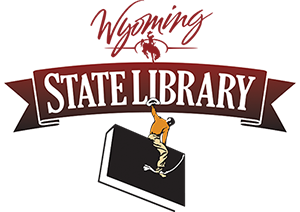
Wyoming State Tribune, Cheyenne State Daily January 11, 1925. Solution found in the January 12, 1925 edition. (Click for larger image.)
Crossword puzzles are a common sight today. Most people do not spare a thought to their inclusion in a newspaper or their place within a puzzle book. However, at one time crossword puzzles were a novelty. Humanity has been playing with words since ancient times — for instance, riddles that scholars have found on ancient Babylonian tablets. Word squares, without any blacked tiles, have been around since at least the Roman empire. Yet, the modern crossword can trace its history to a much more recent date.
In 1913, Arthur Wynne created what many consider the first crossword. Published on the New York World’s Fun page, this puzzle started the advent of the modern crossword. Crosswords crept into publications during the 1910s, becoming even more common. Yet, it was not until the 1920s that the general public took notice. By the mid-1920s crossword-mania had struck the nation.
Throughout the 1920s, newspapers often referenced the crossword fad. Articles highlighted libraries inundated by puzzlers’ requests to use their dictionaries. Comic strips satirized crossword fanatics and highlighted the puzzle’s pervasiveness. Editorials even discussed whether the puzzles were positive or negative for humanity.
In Wyoming, the fad took a bit longer to catch on. It wasn’t until 1924 that newspapers published a crossword. By 1925 newspapers across the state included crosswords in their daily editions. The Casper Daily Tribune, Sheridan Post-Enterprise and the Wyoming State Tribune, Cheyenne State Leader all offered daily crosswords. Other newspapers occasionally included the puzzles during this time. Yet by the year 1926, only one newspaper in the state continued to publish the puzzles on a regular basis.
The crosswords shown here are examples of these 1925 crosswords. Each comes from a newspaper digitized in the Wyoming Digital Newspaper Collection. In the collection search for the keyword “crossword” while checking the box “Hide restricted content.” This will reveal all public domain references to crosswords in the collection. You can find everything from crossword advertisements, to discussion on puzzle psychology.
 Sheridan Post-Enterprise April 2, 1925. Solution found in the April 3, 1925 edition. (Click for larger image.) |
 Casper Daily Tribune February 28, 1925. Solution found in the March 1, 1925 edition. (Click for larger image.) |
